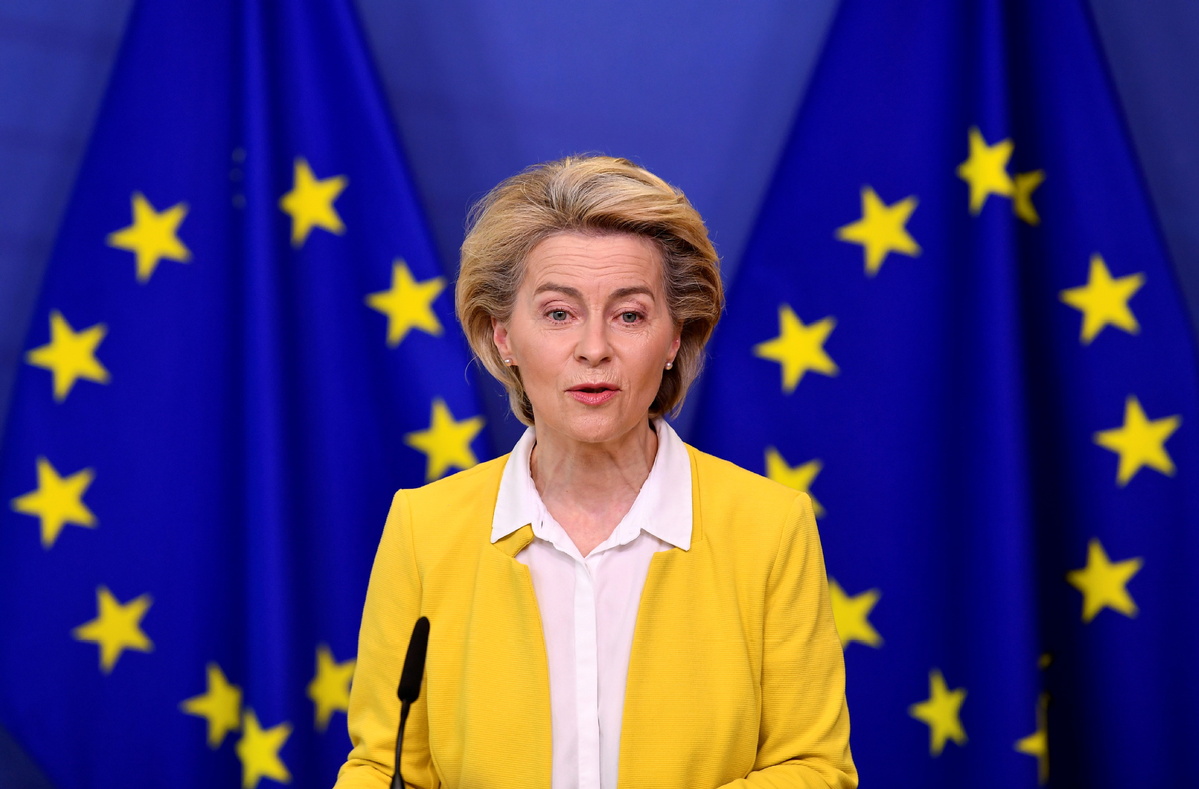Europe turns carbon neutrality goals into laws


The European Union has made a legal commitment to reach its 2050 climate change goals, including a target to more than half its net greenhouse gas emissions by 2030.
After 14 hours of talks on Wednesday, negotiators from the European Parliament and EU member states announced they had secured agreement on European climate law that commits the bloc to reaching climate neutrality by 2050.
"The Climate Law sets the EU on a green path for a generation," said European Commission head Ursula von der Leyen after the marathon meeting, adding: "It is our binding pledge to our children and grandchildren."
Negotiators rushed to make the deal ahead of a key virtual summit hosted by China and the United States on Thursday and Friday, when around 40 world leaders will promote their pledges to protect the planet.
Previously, the EU's target was, by the end of this decade, to reduce its greenhouse emissions by 40 percent compared to 1990 levels, noted German broadcaster Deutsche Welle.
On its website dedicated to climate change action, the EU said the new deal now puts that target at 55 percent. Deutsche Welle noted that the agreement still needs formal approval from the EU Parliament and national governments of member states.
Commission vice-president Frans Timmermans said in a statement that the deal was a "landmark moment" for the EU.
He said: "We have reached an ambitious agreement to write our climate neutrality target into binding legislation, as a guide to our policies for the next 30 years."
The EU said that by 2019, emissions from the bloc were already 24 percent lower than in 1990.Environmental campaigners have sought for a cut of 65 percent, and EU lawmakers had wanted a 60 percent target by 2030, Reuters news agency reported.
A major package of EU regulations expected in June will include proposals to revamp the EU carbon market, tougher CO2 standards for cars, and a border tariff to impose CO2 costs on imports of polluting goods, said Reuters.
The EU regards the European climate law as a framework, which, if adopted globally, it says would limit global temperature increases to 1.5 degrees above pre-industrial levels and avoid the worst impacts of climate change.
EU climate action is at the heart of its Green Deal initiative that aims to "cut greenhouse gas emissions, invest in cutting-edge research and innovation, and preserve Europe's natural environment".
By setting robust climate targets, the EU hopes to ramp up the ambitions of major emitters ahead of the COP26 United Nations Climate Change Conference in Glasgow in November.
The US government said last month that the upcoming virtual climate summit paves the road to COP26 and "underscores the urgency and the economic benefits of stronger climate action".































